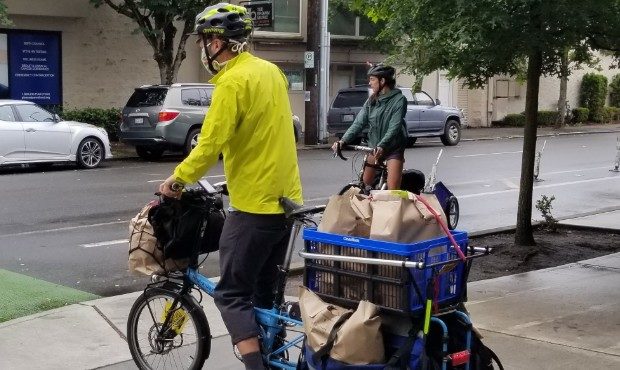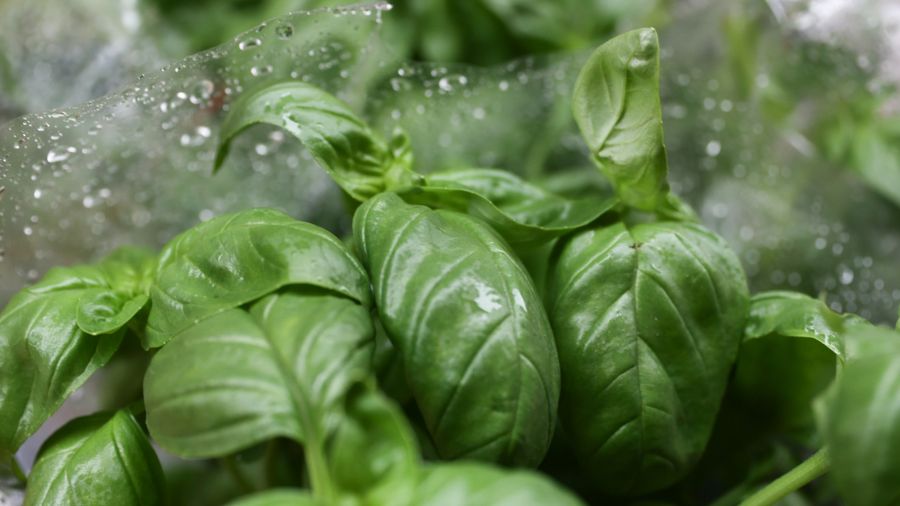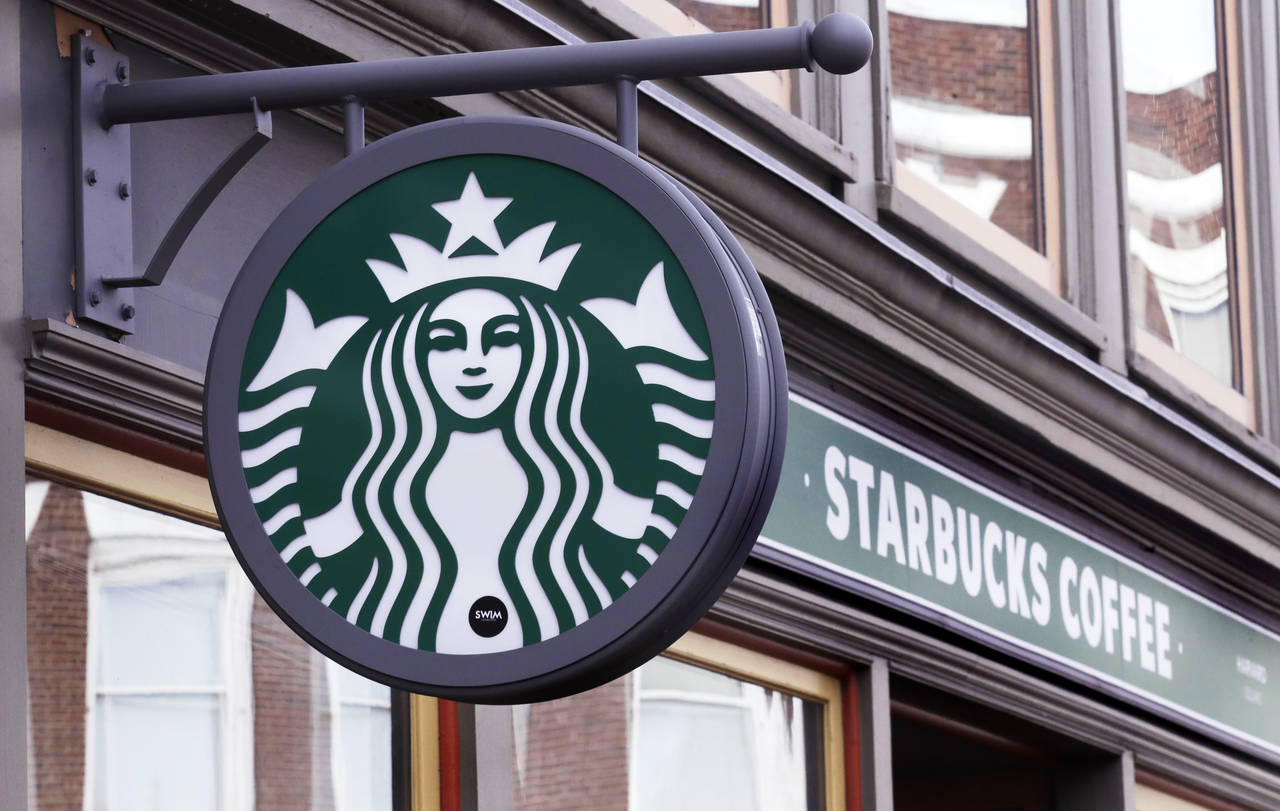Seattle cyclists deliver food to needy families during pandemic
Jul 8, 2020, 3:03 PM | Updated: Jul 9, 2020, 5:35 am

Volunteers with the Seattle Pedaling Relief Project use bikes to deliver food to the hungry. (Photo courtesy of Maxwell Burton)
(Photo courtesy of Maxwell Burton)
At a time when record numbers of Washingtonians are unemployed and having trouble feeding their families, a group of Seattle cycling volunteers is using bikes to help.
Cycling enthusiasts Maxwell Burton and Mike Lang founded the Seattle Pedaling Relief Project, which organizes groups of cyclists to deliver bags of groceries by bike from food banks to about 100 Seattle households every week.
Burton said he had done training using cargo bikes to help deliver resources during natural disasters. He had been picturing a geological disaster like an earthquake or volcano eruption, but when the COVID-19 pandemic began, he realized he was living through a natural disaster — and he could use his skills to help feed the hungry.
“There are a lot of families who, suddenly, they might have had two incomes before, and now they only have one, or zero incomes,” Burton said. “I wanted to find a way to support those people.”
Lunch ladies spread joy to students picking up hot meals during closures
In addition to people struggling in the economic crisis, the 50 cyclists are also helping out vulnerable adults who are avoiding shopping at grocery stores for fear of catching COVID-19.
“It was going to be really hard, if not impossible, for people with immune deficiencies to get food from the grocery store,” Burton said. “Now we have cyclists and teams of cyclists taking food from the food bank and delivering it out to the neighbors.”
Deliveries are made on a weekly basis in Beacon Hill, Rainier Valley, the University District, and the Central District, with the help of El Centro de la Raza in Beacon Hill, the Rainier Valley Food Bank, the U District Food Bank, and Byrd Barr Place in the Central District.
The volunteers on bikes have also started doing food rescue, taking hundreds of pounds of food at a time from grocery stores that were going to throw the food away.
Each bag that’s delivered contains enough food to feed a family for a week, including a healthy assortment from all food groups. So far, they’ve delivered 4.5 tons of food.
But the cyclists don’t just bring joy through food — they bring social interaction to people who have been isolated for months.
“They’ve been locked down in their house months now, so every week they’re just overjoyed to see somebody. … We obviously try to stay distant, but I’ve had a lot of volunteers have 10-, 15-minute conversations with the families,” Burton said.
Importantly, they can also help needy households get in contact with other social services, such as utility assistance or mental health treatment.
Burton said the cyclists are all taking social distancing precautions, including spreading out when meeting up, and delivering food in small groups.
The group hopes to expand to other neighborhoods, including West Seattle and White Center. Burton and Lang are currently exploring partnerships that would help them to do so.
To learn more or to sign up to help volunteer, visit pedalingrelief.org.













